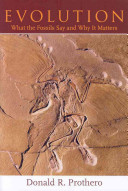What It Means to be a Scientist
In reality, scientists are just people like you and me. Most of us don't wear lab coats (I don't) or work with bubbling beakers or sparking van de Graf generators (unless they are chemists or physicists who actually work with that equipment). Most scientists are not geniuses either. It is true that, on average, scientists tend to be better educated than the typical person on the street, but that education is a necessity to learn all the information that allows a scientist to make discoveries. Still, there are geniuses, like Thomas Edison, who had minimal education (he only attended school for a few months) but a natural instinct for invention. So education is not always required if you have talent to compensate. Scientists are not inherently good or evil nor are they trying to create Frankensteins, invent the next superweapon, or tamper with the operations of nature. Most are ordinary people who have an interest and curiosity to solve some problem in nature and rarely do they discover anything that might threaten humanity.
Scientists are not characterized by who they are or what they wear, but what they do and how they do it. As Carl Sagan put it, "Science is a way of thinking much more than it is a body of knowledge." Scientists are defined not by their lab equipment but by the tools and assumptions they use to understand nature—the scientific method. The scientific method is mentioned even in elementary school science classes, yet most of the public still doesn't understand it (possibly because the mad scientist Hollywood stereotype is more powerful than the bland material from school). The scientific method involves making observations about the natural world, then coming up with ideas or insights (hypotheses) to explain them. In that regard, the scientific method is similar to many other human endeavors, such as mythology and folk medicine, which observe something and try to come up with a story for it. But the big difference is that scientists must then test their hypotheses. They must try to find some additional observations or experiments that shoot their idea down {falsify it) or support it {corroborate it). If the observations falsify the hypothesis, then scientists must start over again with a new hypothesis, or recheck their observations and make sure that the falsification is correct. If the observations are consistent with the hypothesis, then it is corroborated, but it is not proven true. Instead, the scientific community must continue to keep looking for more observations to test the hypothesis further.
This is where the public most misunderstands the scientific method. As many philosophers of science (such as Karl Popper) have shown, this cycle of setting up, testing, and falsifying hypotheses is unending. Scientific hypotheses must always be tentative and subject to further testing and can never be regarded as finally true or proven. Science is not about finding final truth, only about testing and refining better and better hypotheses so these hypotheses approach what we think is true about the world. Any time scientists stop testing and trying to falsify their hypotheses, they also stop doing science.
Notes:
It's not about how they dress or their education, but their adherence to the scientific method.
Folksonomies: scientific virtues scientific method
Taxonomies:
/science (0.737000)
/business and industrial/biomedical (0.301773)
/education (0.278883)
Keywords:
scientific method (0.935591 (negative:-0.233611)), scientists (0.832198 (negative:-0.175570)), hypotheses (0.740259 (positive:0.082621)), scientist Hollywood stereotype (0.731966 (negative:-0.831864)), school science classes (0.715141 (neutral:0.000000)), Scientific hypotheses (0.693786 (positive:0.275405)), better hypotheses (0.680008 (positive:0.589323)), observations (0.666726 (positive:0.034790)), van de Graf (0.645157 (negative:-0.332197)), additional observations (0.642912 (negative:-0.483785)), lab coats (0.636642 (neutral:0.000000)), new hypothesis (0.633184 (neutral:0.000000)), Thomas Edison (0.631794 (neutral:0.000000)), natural instinct (0.627789 (positive:0.587495)), typical person (0.627312 (neutral:0.000000)), bland material (0.626767 (negative:-0.831864)), Carl Sagan (0.626605 (negative:-0.204392)), minimal education (0.625478 (neutral:0.000000)), ordinary people (0.622227 (negative:-0.756369)), human endeavors (0.622043 (positive:0.379936)), folk medicine (0.621064 (positive:0.436796)), big difference (0.620139 (neutral:0.000000)), scientific community (0.617472 (positive:0.413882)), lab equipment (0.615390 (neutral:0.000000)), final truth (0.614799 (neutral:0.000000)), Karl Popper (0.614104 (neutral:0.000000)), natural world (0.613058 (positive:0.370868)), geniuses (0.568982 (negative:-0.260729)), nature (0.549465 (negative:-0.756369)), public (0.546678 (negative:-0.579798))
Entities:
Scientist:JobTitle (0.899836 (negative:-0.229320)), Karl Popper:Person (0.279445 (neutral:0.000000)), Carl Sagan:Person (0.278372 (negative:-0.204392)), Thomas Edison:Person (0.274837 (neutral:0.000000))
Concepts:
Scientific method (0.945023): dbpedia | freebase
Falsifiability (0.746402): dbpedia | freebase
Karl Popper (0.551849): dbpedia | freebase | yago
Philosophy of science (0.537652): dbpedia | freebase
Science (0.530878): dbpedia | freebase | opencyc
Theory (0.512274): dbpedia | freebase
Hypothesis (0.497427): dbpedia | freebase
Observation (0.480134): dbpedia | freebase | opencyc






